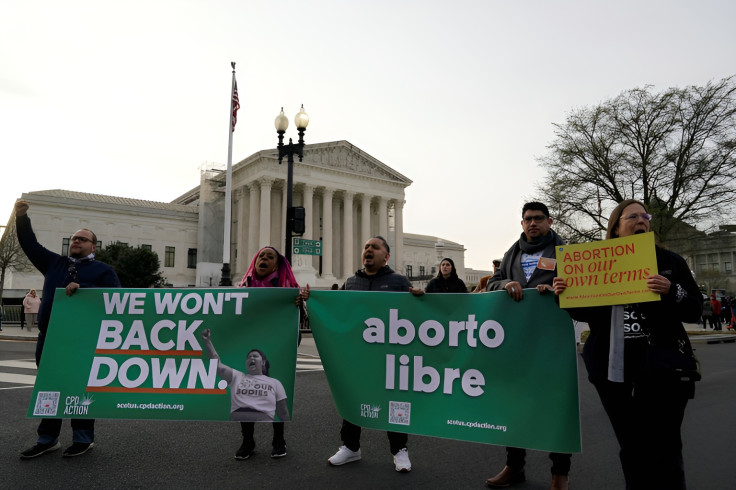
The Arizona Supreme Court accepted delaying the implementation of a controversial law banning practically all abortions in the state following its repeal in the legislature.
Concretely, the court upheld Democratic Attorney General Kris Mayes' request to provide 90 additional days before allowing for the ban to move forward.
This is because even though the law was repealed, the new measure only goes into effect 90 days after the end of the legislature's session. And considering it's still ongoing, the measure narrows the window of time during which the ban, which includes cases of rape and incest, can be enforced.
"I am grateful that the Arizona Supreme Court has stayed enforcement of the 1864 law and granted our motion to stay the mandate in this case for another 90 days," Mayes said in a statement Monday.
The law was set to go into effect on June 27, but it has been pushed to September 26. In the meantime, the state will continue enforcing a 15-week ban on abortions passed in 2022. That law makes exceptions for medical emergencies but not for rape or incest (same as the 1864 one).
The time frame for the law depends on when the legislative session ends. In 2023 it did so on July 31. If that's also the case this year the ban would be enforceable for a little over a month, between late September and the end of October.
Hayes added that her office "will consider the best legal course of action to take from here," including the possibility of asking the U.S. Supreme Court to intervene.
However, Arizona advocates are moving forward to putting the issue on the ballot in November, as Democrats at the national and state level have sought to take political advantage of it and galvanize voters.
The state activists claimed in April that they had gathered enough signatures to achieve that goal, an initiative that has so far proven to always be winning at the voting booth.
In fact, a vast majority of Latino voters in California, and in the battleground states of Nevada and Arizona say they are more likely to vote for a candidate who supports abortion rights, according to a poll by BSP Research, commissioned by Latino Community Foundation (LCF).
The results of the tri-state survey, which assessed voters' views on various other topics, found that 77% of Latino respondents in California, 74% in Arizona and 82% in Nevada said they were more inclined to vote for "a candidate who holds a pro-choice position and would advocate for making sure abortion access was available nationwide".
President Joe Biden would benefit from this trend if it was the deciding issuea at the time of casting the ballot in the November. The Democrat has been placing abortion rights as a centerpiece issue for his campaign, chastising Republicans who have implemented restrictive measures across the country.
© 2025 Latin Times. All rights reserved. Do not reproduce without permission.





